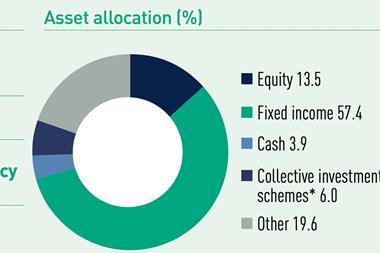The vice chair of the International Sustainability Standards Board (ISSB) has underscored the board’s collaborative efforts with European institutions to align sustainability reporting standards in a keynote address to the Brussels Association of German Banks.
In a speech delivered on 30 August, Sue Lloyd pressed the need for interoperability between the ISSB standards and those developed by the European Commission and the European Financial Reporting Advisory Group (EFRAG).
She said “it would be of greatest benefit to our respective stakeholders if the ISSB, the Commission and EFRAG are able to communicate jointly on interoperability.”
The ISSB and the European Union are currently working closely to ensure that companies using both European and ISSB standards will not face double reporting.
Lloyd also noted that while the European standards have a broader public policy mandate than the ISSB’s standards, the two sides have “managed to achieve a very high degree of alignment in our climate disclosures”.
In a paper prepared for EFRAG’s Sustainability Reporting Board meeting on 23 August, staff said “EC/EFRAG and the ISSB have ensured a very high degree of interoperability between the two sets of standards”.
The document explained: “Companies that are required to report in accordance with ESRS will to a very large extent report the same information as companies that use ISSB standards.”
Future agenda priorities
Lloyds’ comments came just 48 hours ahead of the deadline for comments on the ISSB’s consultation on its future agenda priorities on 1 September 2023.
The board was seeking feedback on four potential projects covering biodiversity, human capital, human rights, and further integration in reporting.
This consultation aimed to give the board a better understanding of what sustainability-related matters it should prioritise.
ISSB’s role and broad support
The ISSB was launched in November 2021 from a merger of the Value Reporting Foundation – the host organisation of the Sustainability Accounting Standards Board – and the Climate Disclosure Standards Board.
In June of this year, the ISSB issued its first two sustainability standards dealing with general reporting requirements and climate-change reporting.
The board has secured support for its work from both the Financial Stability Board and the International Organisation of Securities Commissions.
Global need for sustainability disclosures
In her address, Lloyd also elaborated on the ISSB’s consolidation of existing frameworks like the Sustainability Accounting Standards Board (SASB) and the Task Force for Climate-related Financial Disclosures (TCFD) to reduce market fragmentation.
This effort is aimed at enhancing the decision-usefulness of sustainability-related financial disclosures.
Lloyd concluded by emphasising the ISSB’s focus on providing better economic and investment information through standardised reporting.
She said: “We will be well placed to ensure investors are provided with better information for better economic and investment decision making.”












